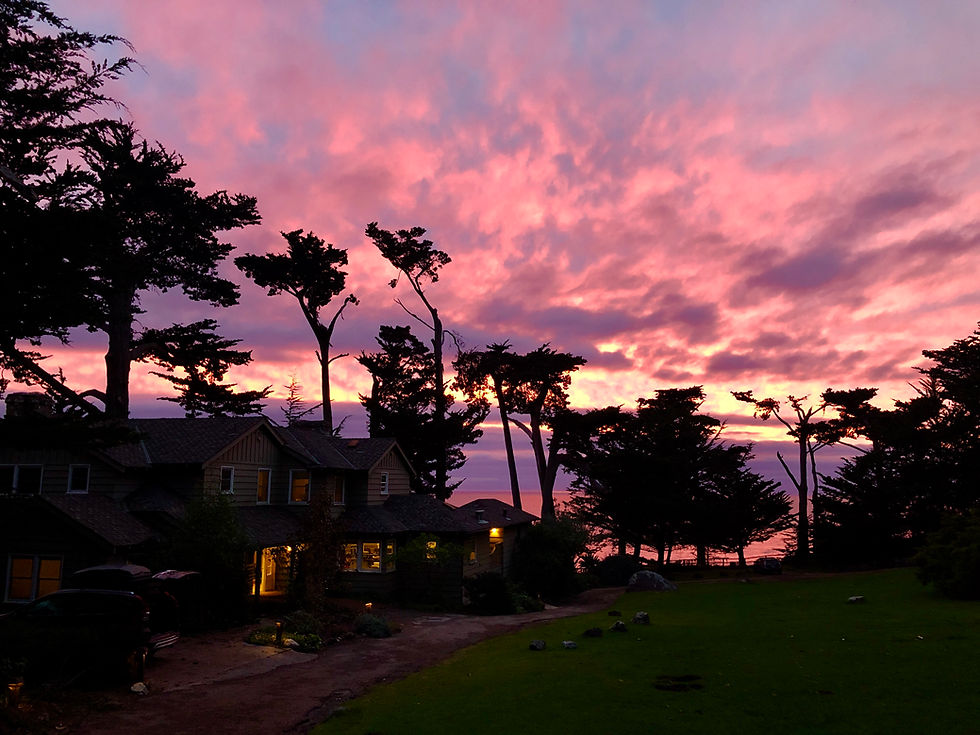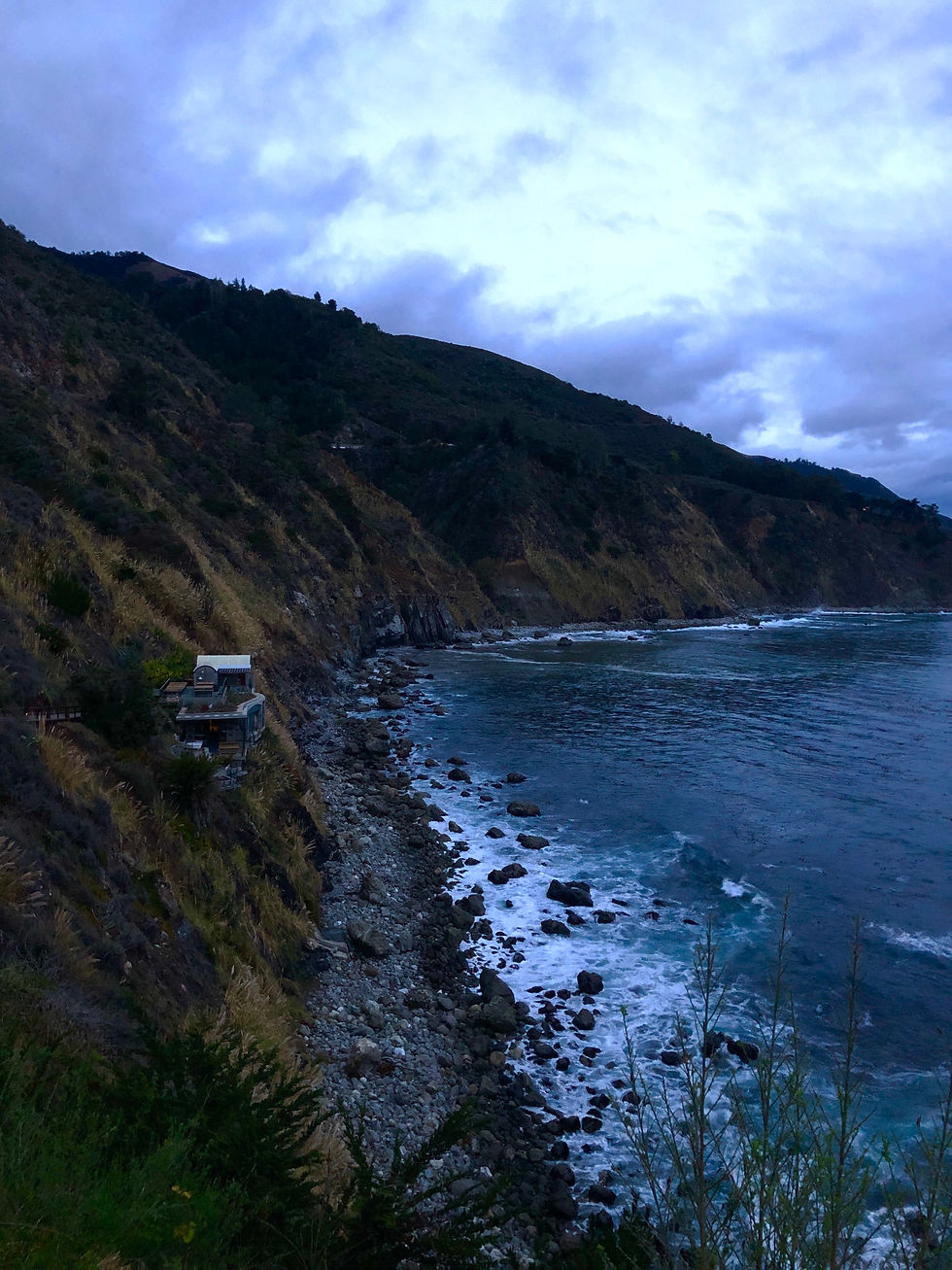Trekking Way Out West
- Bjørn Ekeberg

- Dec 27, 2019
- 3 min read
Recently, I had the privilege of being invited to the Esalen Institute in California, to participate in a symposium on "Physics, Metaphysics, and Experience."

John Horgan, writing for Scientific American, was also there and he filed this report on our grappling with the mind-body problem and some of its cosmic implications.

Horgan raises a series of objections from the point of view of a materialist paradigm, which as he rightly points out, was more or less 'under siege' during this event.
While I share some of his skeptical attitude, along with his fascination, some of the problems he raises in response are themselves somewhat problematic.
In the spirit of dialogue, a few comments:
Mystical diversity. There are too many different kinds of mystical experiences to construct a coherent metaphysics from it, Horgan argues. A related problem in his view is that the 'ineffability' of such experiences make them impossible to explain fully.
But the extrinsic diversity of so-called exceptional experiences belies the intrinsic feature they all seem to share: a rupture in the ordinary frameworks of understanding.

In my view, the attempt to take exceptional experiences seriously - as we tried to do during this symposium - does not imply constructing a metaphysics that accounts for all such phenomena as individual experiences.
Rather, it means positing a framework within which any claim to such experience could at least begin to make sense. Following a materialist outlook, many commonly reported and widely experienced phenomena for which there is ample documentation are simply ruled out as impossible by default.
This is what our gathering set forth to challenge from various points of view.
Neo-Geocentrism? Horgan argues that proposing mind or consciousness as a reality distinct from matter basically revives an old 'geocentric' assumption that places humans once again at the center of things. (Much like the anthropic principle does in cosmology, incidentally.)
Neo-Geocentrism is a great mock name - but is it accurate in this case? Horgan's premise is that mind or consciousness must be a human and "uniquely terrestrial" phenomenon.
But what reason do we have to assume that mind would be limited to 'us' while matter is assumed co-extensive with the cosmos? Because of the absence of so-called ‘intelligent life’ elsewhere (itself a giant anthropomorphic projection)?
If we engage seriously with the idea of mind as some kind of irreducible reality distinct from (even if embedded in) the physical world, it appears unbounded materially. Many theories would rather suggest what we experience as consciousness is not primarily an individual phenomenon inside us but rather something beyond us we participate in.

Certainly, such thinking seems a big leap from a materialist viewpoint. But to presume that consciousness would end above our crown, or inside the Earth's atmosphere, I would argue is letting a materialist bias creep in through the back door.
The kinds of phenomena discussed at Esalen - ranging from physical mediums to religious epiphanies to psychotic states - offered no clear conclusions and did little to flip a skeptic.
But such experiences are salient because they point past the limit of materialist science, toward means of connection beyond individual brains and bodies. But where does that lead?
Oneness? Finally, Horgan has misgivings about the doctrine of ultimate oneness. Indeed, oneness is a more paradoxical concept than it may first appear. As I discuss in my book, the concept and logic of identity in Western metaphysics is such that it precludes thinking this kind of oneness properly. In Christian and early modern metaphysics, oneness is achieved at the cost of a radical separation between God and Nature, creator and creation. On an individual level, the idea of merging into an 'all-one' means to dissolve the self and therefore, as Horgan argues, give up on consciousness (at least as self-consciousness) altogether, which seems impossible.
But perhaps the problem here is not normative, as Horgan implies - whether oneness is desirable or not - but rather that we fundamentally experience the world as dual, as both mind and matter, at the same time. Perhaps oneness is not a problem but rather symptomatic of the problem, which is that we struggle to make sense of our reality without somehow resorting to ways of splitting it (and ourselves) up.
In this sense, perhaps oneness is so tantalizing it can only be reached through an exceptional experience. And that takes us back to the start. Would this make the exceptional experience an illusion - or is the illusion the everyday frame that prevents oneness from occurring?

To engage with such questioning does not necessarily mean succumbing to naive spirituality.
Certainly, Horgan expresses legitimate concerns about jettisoning reason along the path of truth - and as a curious seeker he wisely errs on the side of caution.
But I still think it is possible to go deeper into the woods than we did without getting lost.
Perhaps next time around.
Many thanks to Jeffrey Kripal, Harald Atmanspacher, the organizers and participants, and the generous community at Esalen for hosting us.




Comments